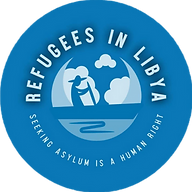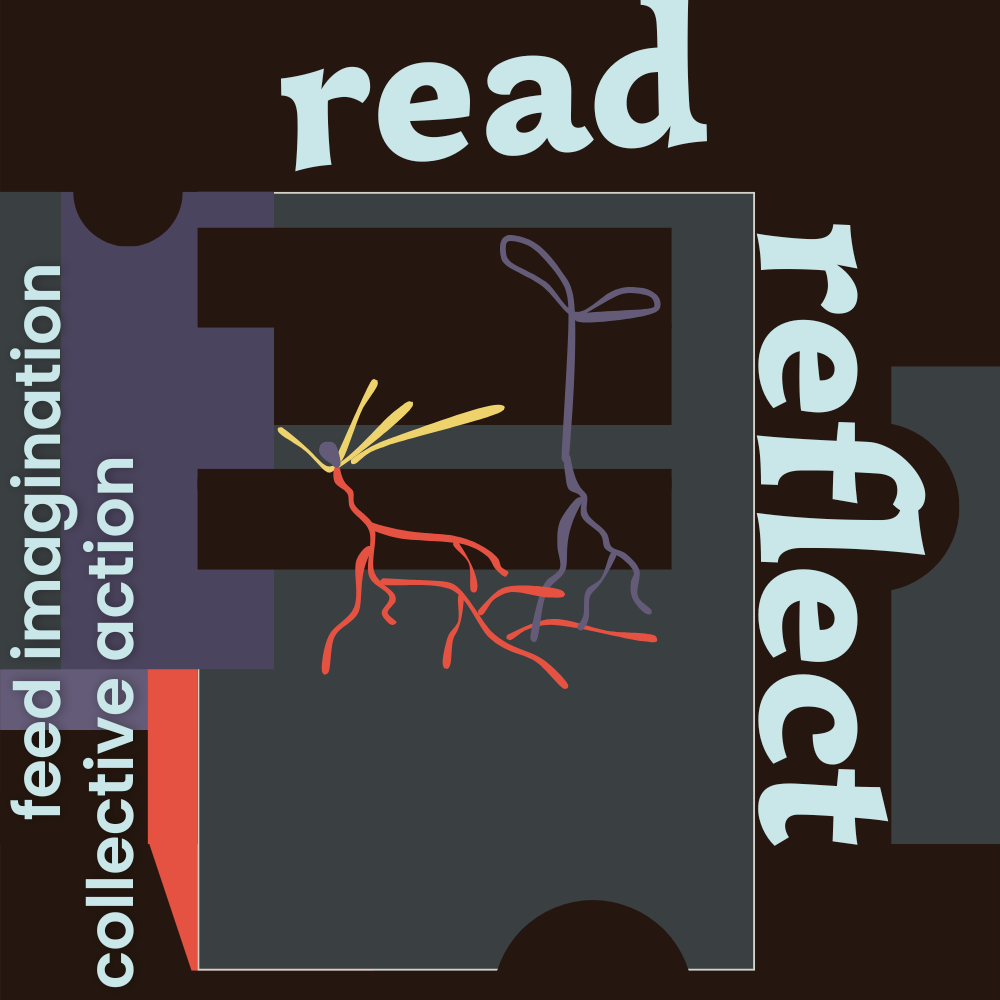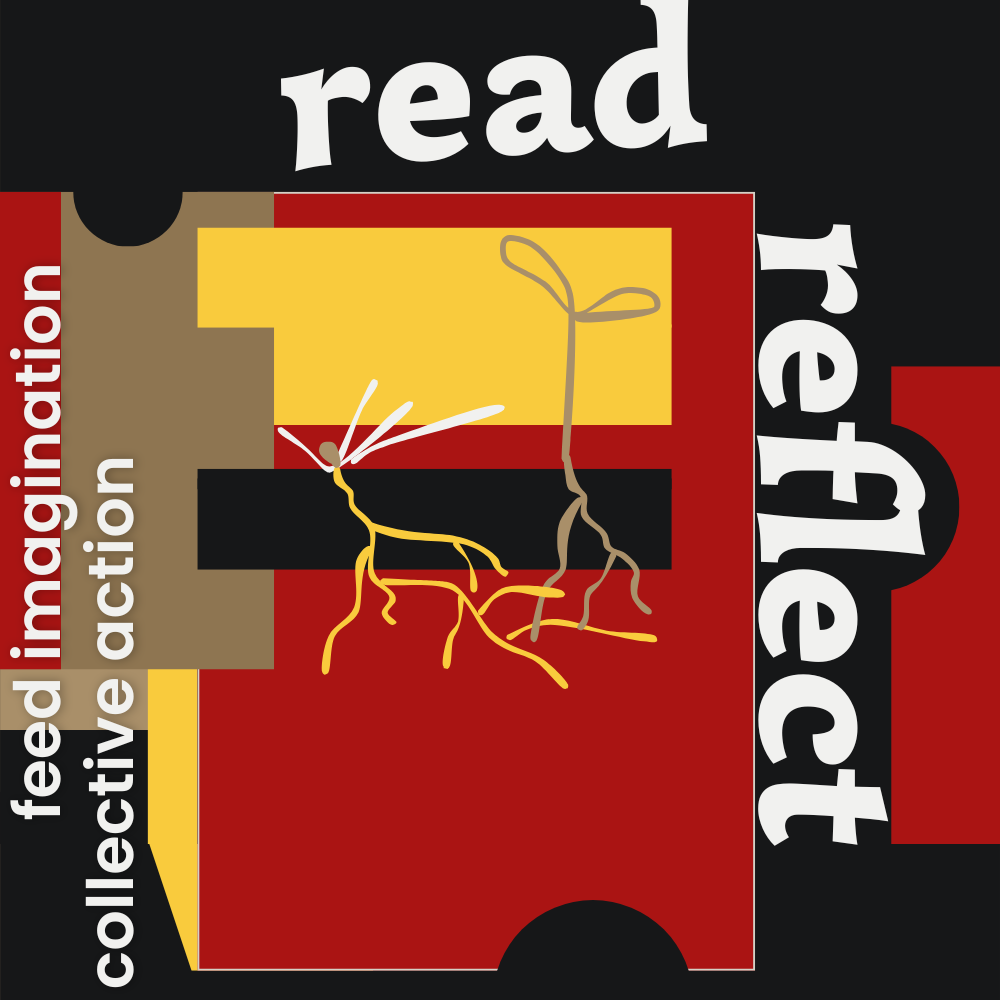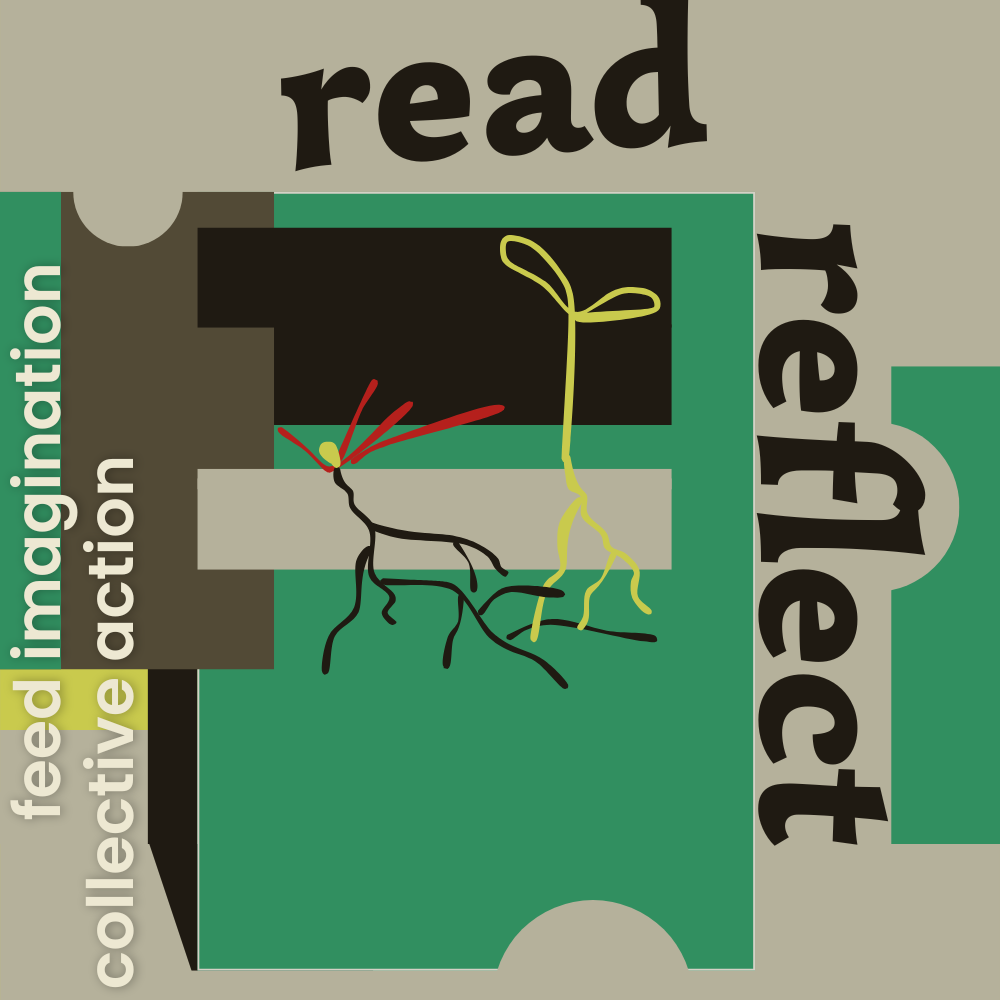continuing thoughts on "war on terror"
continuing reflections first written months ago in a draft, sharing through fatigue, adding to a stream, or ocean of dissent
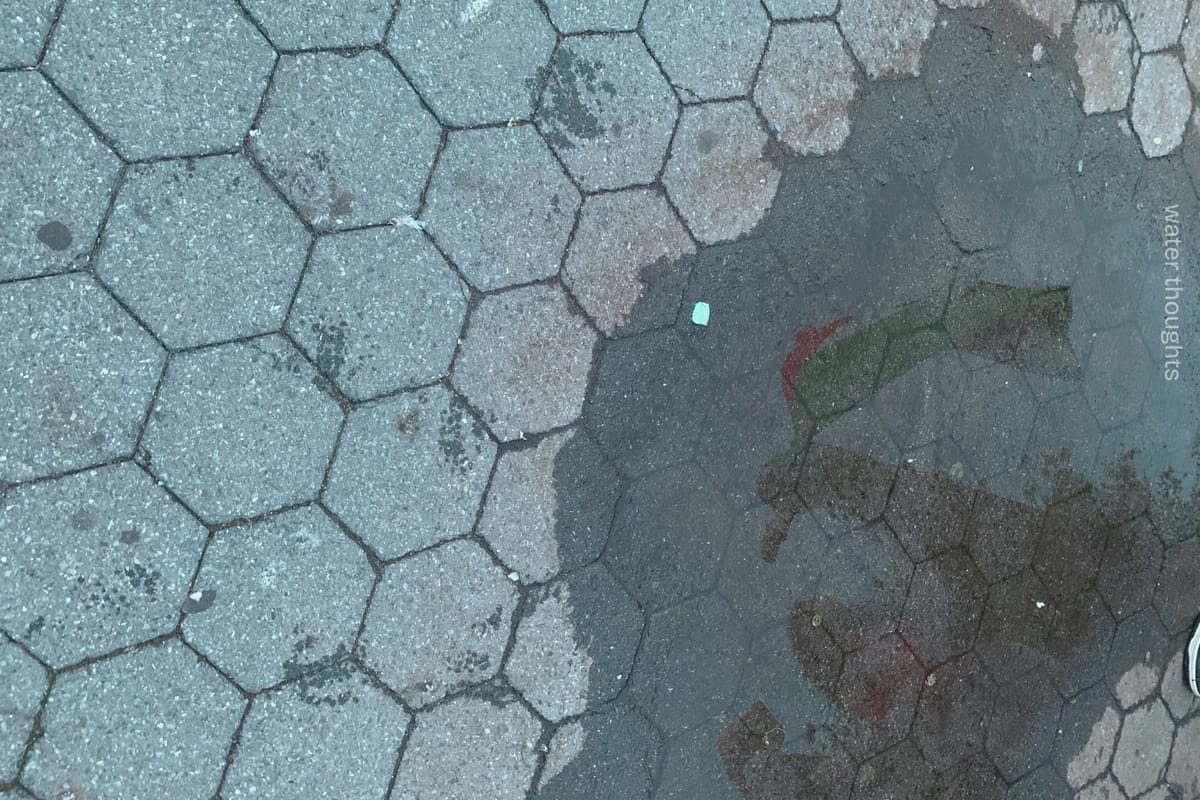
context
This post is a continuation of thoughts I started to put down when writing the prompt support post for the Read, Seed, Water, Feed reading challenge for the category: Book about impacts of u.s. actions taken in name of “war on terror” & cost of u.s. “freedom.” It's a little disjointed, but as I've shared, it's important for me to reach for imperfection, if only there I have a place to start writing, a place to begin.
Two days ago, I changed the language in this prompt from "US" to "u.s."
We are witnessing in real-time an expansion and deepening of this war on humanity led by the u.s. and other states and the impacts of this war on the people within and outside of the u.s. Using fear, scarcity, paternalism, racism, indifference, and a historical absence of accountability, among other sources of power, they bend the rules, attempt to stifle dissent, and continue to take actions that are war crimes according to institutions intentionally created to be powerless.
Below are a few of my thoughts on the "war on terror" that has been conducted or led by a country that knows a lot about terror, both in its own actions and those it defends and supports. Only a few of my thoughts. I wish I could share more of them. I wrote most of the next section several weeks ago, and didn't have time to reflect on it then when I needed to prioritize the prompt support posts I was trying to work through.
reflections and notes on the books I shared
Sharing again, using the slides from the prompt support post because that is easiest for me right now (fatigue), the small selection of books I'd read that I recommend for this category:
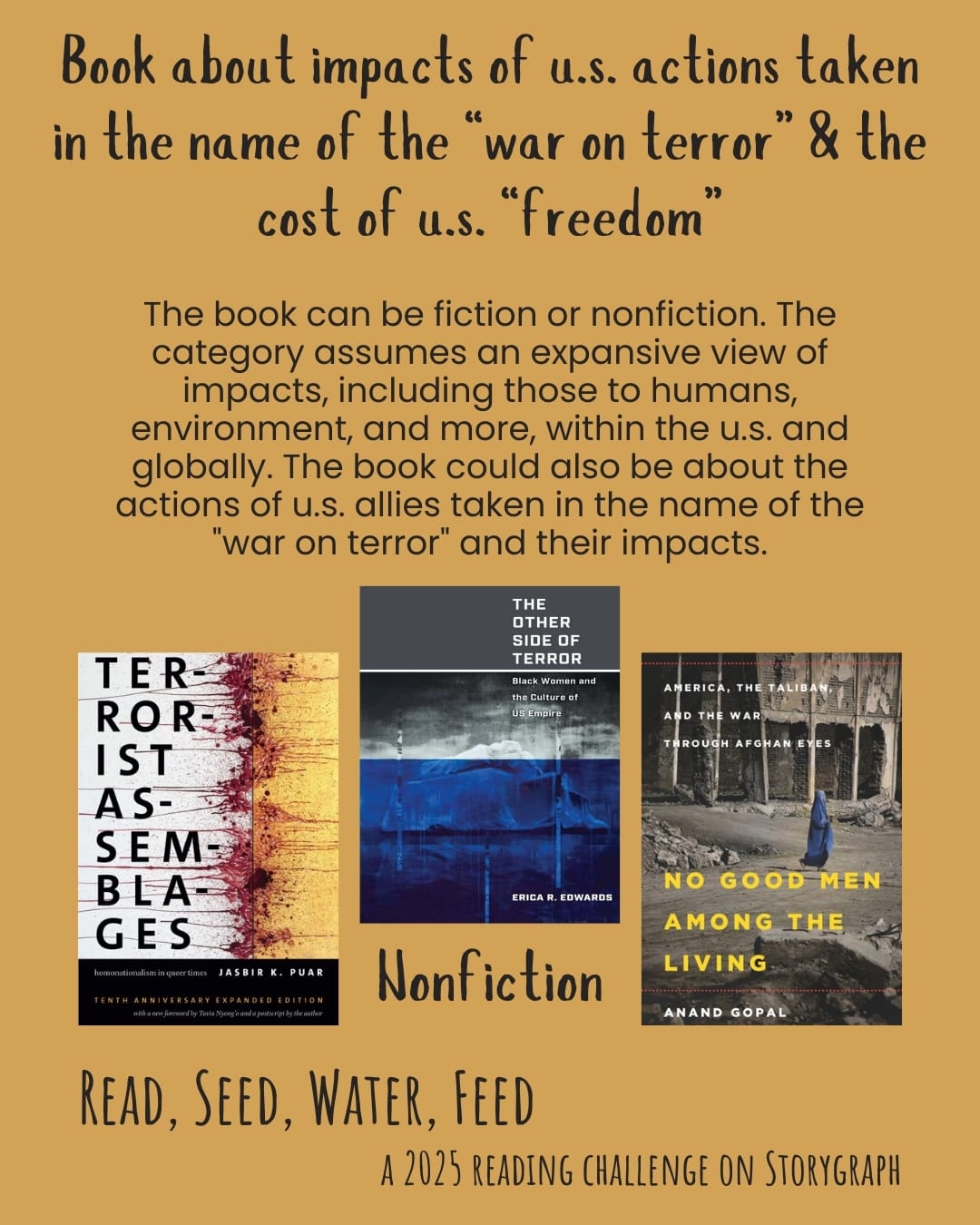
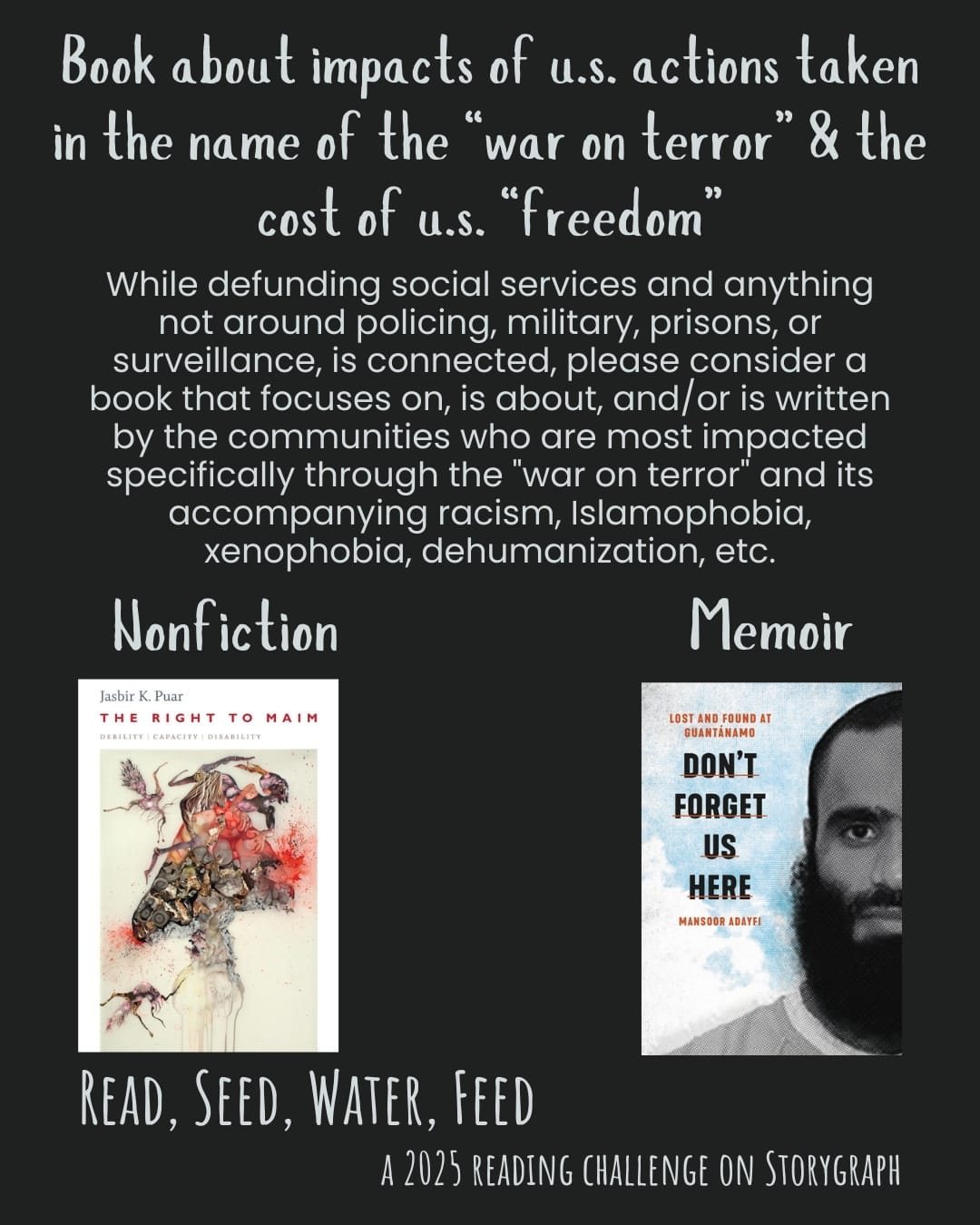
Read, Seed, Water, Feed 2025 reading challenge prompt and description, showing books recommended that I have read or am currently reading. All recommended books are listed lower in the post in the section “Recommended Books in a List.”
In the prompt support post, I wrote, "I started to write more about these books and the topic, as well as the difficulty and complexity of dense reading,..." Following is what I had started to write.
The Right to Maim and The Other Side of Terror
I have deep gratitude to the Decolonial Feminist Collective for introducing me to both Jasbir Puar, through The Right to Maim, and Erica Edwards, through The Other Side of Terror. It took me months to read The Right to Maim, and when I finished, I started her book Terrorist Assemblages, which also took me months to read. I read The Other Side of Terror in late spring 2024—it was always in my mind mixed with student encampments for Gaza and community support. I linked to a study guide for The Right to Maim in the prompt support post. I will be writing about these books again. [1]
I cannot recommend these books enough, to change the lens, to alter the consciousness, to shift the reflection, to show a different way of thinking about why, to help us imagine how the world might be able to be interrupted, to be shifted, re-arranged, re-assembled, how culture plays a role and how we can use culture to also fight back, to think about intersectionality differently, and to better understand how and why so many deprecatory efforts are made by the u.s. to refer to people who oppose the racism of u.s. policies, both domestic and international, and who oppose the inhumanity, brutality, and sacrifice of people in pursuit of goals, as "terrorists."
No Good Men among the Living and Don't Forget Us Here
I listened to Anand Gopal's No Good Men among the Living and Mansoor Adayfi's Don't Forget Us Here several years ago. My library had 90 copies of the audiobook for No Good Men among the Living, what I assumed was in anticipation of increased interest around the 20 year anniversary of 9/11, and there were never more than a few checked out at any time. I've always appreciated this about one or more people at the library, and have felt sadness that more people didn't take advantage of it. Now they have one copy, often with a hold on it.
I think often about the human trafficking that the u.s. engaged in that picked up many innocent people in Afghanistan, which is discussed in Anand Gopal's No Good Men among the Living, and how that is connected to a long history of human trafficking for the u.s., and how the u.s. administration pretends that not only is it is only something that other countries do, but also of course, only other countries have political prisoners, the u.s. has none.
I am deeply grateful for the solidarity Mansoor Adayfi continues to demonstrate for Palestine alongside his continuous efforts to close Guantánamo. I think his memoir is a must-read.
continuing reflections
background, or soil, or murky river bottoms that provide nutrients..
I'm currently reading Fred Moten and Stefano Harney's The Undercommons, and in the interview with the authors, Stevphen Shukaitus asks a followup question on the idea of concepts as toys, such that they allow for play, for interaction, and the question was related to trying to understand how to perceive that play is intended in a "text that's finished." Stephano Harney shares,
Well, one way that I do that is by revising how I say things.... So, for me, it must be right there in the writing in some form. It’s not enough to signal it outside the writing, to send the piece out and to say, ‘oh, really this is still open for this or that.’ It has to be somehow in the writing itself that the thing hasn’t closed off.
And Fred Moten shares,
What you listen to or what you’re reading is still moving and still living. It’s still forming.
I can sense this easily within my own writing, or rather, it helps me with language to describe what it feels like. To me, or how I might describe what they've discussing, it is a point of not ending, not closure, or rather that a point made is not closed to the input of other ideas, especially those from a conversation, but for me especially, also those from reading, from experiences, from memories that suddenly show up, or probably more to the point, though with them, I'm also not sure about there being a point rather than a constellation of points, but to describe a writing as left open for engagement, for play, for interaction, for movement.
For me, it is both trying to put into a way of being with the text that which I am reading and in reflection or study on, also that disability has made it difficult for me to express myself, or fatigue to find words, so that many layers form within the text, reflecting different parts of my ability to write, and then also, I rely on input from many sources—conversations, the few I have, but also pictures that bring up memory, books, essays, films, music, so much, that help me with finding energy and connecting words to express thoughts that aren't always easily within my grasp or way to do.
And I share this as background for this particular post, which is related to when I started to write about this topic for the prompt support post, and had difficulty stopping. And stopping is what I will eventually do, but also that it won't be stopped, as long as the so-called "war on terror" continues to be conducted against the majority of humanity in many different ways but not separated from its own history, which I also won't even address here, but is addressed sometimes in the myriad of books that I've shared. And I wish I could be briefer, and I'm trying and I'm learning. Continuing...
continuous continuities and the contiguous connections and other riprap of u.s. empire
I wanted to write about how the u.s. grades countries in Africa for how well they are able to track human trafficking, an action that is likely initially applauded by white feminists, to show why such efforts continually hurt most women and gender minorities who are Black, Indigenous, and/or part of the global majority. But to do that now in the way I'd want to, I think, I would also want to bring in Adom Getachew's Worldmaking After Empire, and it's not possible to do that without thinking about how 47 has recently talked about "self determination" while demonstrating little interest in truly extending self determination and sovereignty over minerals to many countries, and anyway, Worldmaking After Empire includes history, like other books I reference below and others that I don't yet, that preceded the current so-called "war on terror" and that also cannot be extricated from its connection to it, its continued influence on it, the way in which the structures continue to narrow who is allowed self-determination and who needs to be held, who needs to be controlled, and I cannot think about holding without thinking about the slave ship, without thinking about the many ways writers have engaged with the hold, while also, like those who have been held, whether on the slave ship, in the prison hold, on migrant boats, in extermination camps, the horrifying genocide from which Palestinians have no way of escaping the incessant bombing, starvation, siege, blockade, and the powers of the world deny it happening or that they can stop it, and so many ways the hold continues, and also that refusal to be held is present, all while denial that it happened, happens and is happening continues.
In In the Wake, Christina Sharpe writes, [2]
The details and the deaths accumulate; the ditto ditto fills the archives of a past that is not yet past. The holds multiply. And so does resistance to them, the survivance of them: “the brittle gnawed life we live, /I am held, and held.” We understand this because we are “standing here in eyelashes.”
Tonight as I finish this, adding this one paragraph, I'm thinking of resistance, of Palestinian resistance, of all resistance. Today was the commemoration day of the Nakba, a continuation of resistance to the continuation of the Nakba, to a continuation of a u.s.-funded genocide that must be stopped, resistance, refusal, survival, and still the Nakba continues and grows, a ground invasion of northern Gaza happening again, houses with all of their humans disappeared into the ground by u.s.-funded bombs, no physical trace, but the trace remains, through the stories, and the "details and the deaths accumulate; the ditto ditto fills the archives of a past that is not yet past," and all struggles are interconnected, entangled, and resistance grows, and resistance grows, a refusal to forget, a refusal to forgive, end the blockade, break the siege, all of Palestine will be free.
I've previously shared several pieces in which Saidiya Hartman has written about the hold of slavery, shared in the prompt support post for a book about slavery or the afterlife of slavery.
I am also thinking about Omar El Akkad's What Strange Paradise, which I recently read. Also films like Mati Diop's Atlantics (2019), Sally El Hosaini's The Swimmers (2022), and Nikyatu Jusu's Nanny (2022) with her inclusion in the plot of Mami Wata. And then all of these films involve water, and then some of what I think about I've previously shared in a post about water, and ways it is used to obstruct flow of life, another post that is open, unfinished, won't be finished until water is no longer used in ways that obstruct the flow of life. That post supports the related reading challenge prompt, but also is part of a stream that flows through this writing space that is largely connected through water.
Of books that have helped me understand better international connections, precedents, etc, of israel's use of torture, indefinite detention, forced feeding, and people dying of the torture they received in imprisonment, and also to better understand u.s. history, of books I've read, I think immediately of Mansoor Adayfi's Don't Forget Us Here, Orisanmi Burton's Tip of the Spear, and, in the parts of the book related to torture, eugenics, and experimentation on prisoners, Nelson A. Denis' War Against All Puerto Ricans. These are not the only books, but the ones that come first to my mind about these specific points. Well, on indefinite detention, I also think about Soledad Brother by George Jackson, and then not specifically on these points, but on targeting, tracking and detainment, books like Safiya Bukari's The War Before come up. I've shared these books and more, including several novels, in a prompt support post for books written about or by one or more current or former prisoners.
I read a piece of writing this morning by David Yambio, cofounder and president of Refugees in Libya. This is where I'll end, which is really no end at all, and where will this end, when will this end, when will outsourcing of cruelty and brutality be stopped, whether by the EU, the US, or other actors? There's no closure in the u.s.' so-called "war on terror," where there is no limit to where actions supporting it will take place, until there is a new world in which such wars have no role.
In "EU Law and Life of Us the Black Migrants," within stories and stories that illustrate the pain and brutality of borders and and the cruelty and racism of those who create and enforce them, David Yambio writes,
The real terrorism is not on those boats. It is in the boardrooms where decisions are made to treat rescue as disruption, protest as danger, humanity as threat.
[...]
Europe has outsourced its cruelty. And what shocks me most is not the brutality itself. It is the ease with which it is denied.
Please read this piece, I think it is a must-read. [3]
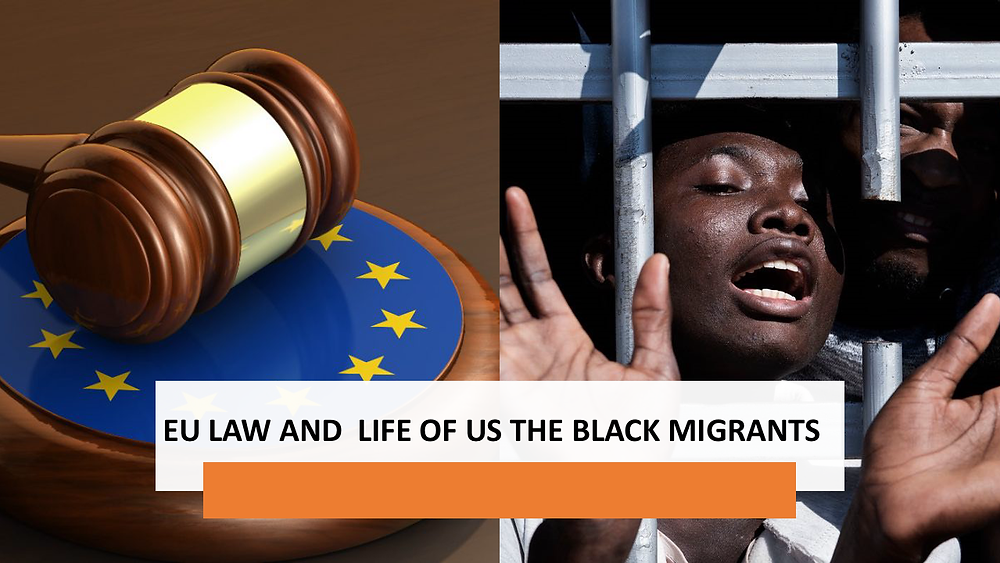
books
At the end of each post, I will share books I referenced and recommend unless the post itself already contains recommendations with book covers or the book is not part of recommendations, but was related to a quote or passage I shared. Some books, I will touch on again, but in case that doesn't happen, I will try to include each.
nonfiction
In the Wake: On Blackness and Being (2016) by Christina Sharpe
No Good Men Among the Living (2014) by Anand Gopal
The Other Side of Terror: Black Women and the Culture of US Empire (2021) by Erica R. Edwards
The Right to Maim: Debility, Capacity, Disability (2017) by Jasbir K. Puar
Terrorist Assemblages: Homonationalism in Queer Times (2007) there is a 10th anniversary expanded 2017 edition) by Jasbir K. Puar
Tip of the Spear: Black Radicalism, Prison Repression, and the Long Attica Revolt (2023) by Orisanmi Burton
The Undercommons (2013) by Fred Moten and Stefano Harney
War Against All Puerto Ricans: Revolution and Terror in America's Colony (2015) by Nelson A. Denis
Worldmaking After Empire: The Rise and Fall of Self-Determination (2019) by Adom Getachew
memoir
Don't Forget Us Here : Lost and Found at Guantánamo (2021) by Mansoor Adayfi
The War Before: The True Life Story of Becoming a Black Panther, Keeping the Faith in Prison & Fighting for Those Left Behind (2010) by Safiya Bukhari
prison letters
Soledad Brother: The Prison Letters of George Jackson (1970) by George L. Jackson
fiction
What Strange Paradise (2021) by Omar El Akkad
Get any/all of these books wherever you get your books.
Please support libraries however you can. Find out many ways to get involved in supporting libraries at Libraries for the People.
Please consider purchasing books when they are available from Workshops 4 Gaza's bookstore: Noopiming (2020) by Leanne Betasamosake Simpson, Tip of the Spear (2023) by Orisanmi Burton. When I share books that are available for purchase there at the time of posting, I will list them here after the link.
Thank you for reading.
notes
I discovered that I lost all of my highlights for The Right to Maim, and highlighting is partly what helps me better understand complex reading. So I will be writing about these books separately, and probably re-reading the book if I cannot find the highlights.↩︎
The quoted text are words from Dionne Brand's Thirsty, an excerpt that began the chapter titled "The Hold" in In the Wake.↩︎
Yesterday, working on this, I was too fatigued to write, and almost ended this post then. I hope it makes more sense now. And even if it doesn't, please read David Yambio's linked piece which does at https://www.refugeesinlibya.org/post/eu-law-and-life-of-us-the-black-migrants. (PDF also available at the link).↩︎
supporting each other..
Please support this campaign if you are able and copy & share the link with your community.
The Basmat Wasl Fundraiser by Sabreen, Nooreldin, and the Sudan Solidarity Collective, raises much-needed funds for the Basmat Wasl Initiative, a youth-led volunteer initiative that "aims to provide food and humanitarian support to families in need in Sudan."
Their "campaign targets elderly people, women, children, and men, reaching between 5,500 and 6,000 individuals across four main areas: Omdurman, Jerif West, Bahri, and the state of Al-Qadarif." Each week they try to provide "three complete meals to those in need."
Please support the youth-led Basmat Wasl Initiative by Sabreen, Nooreldin, and the Sudan Solidarity Collective, if you are able, and copy & share this link with your community: https://chuffed.org/project/basamt-wasl-fundraiser
And always .. free Palestine free Kashmir free Sudan free Congo free Haiti free Tigray free Puerto Rico free Syria hands off Yemen hands off Lebanon hands off Congo hands off Africa ..
